International
Trump gains ground over Harris and the elections are emerging as the closest of the century
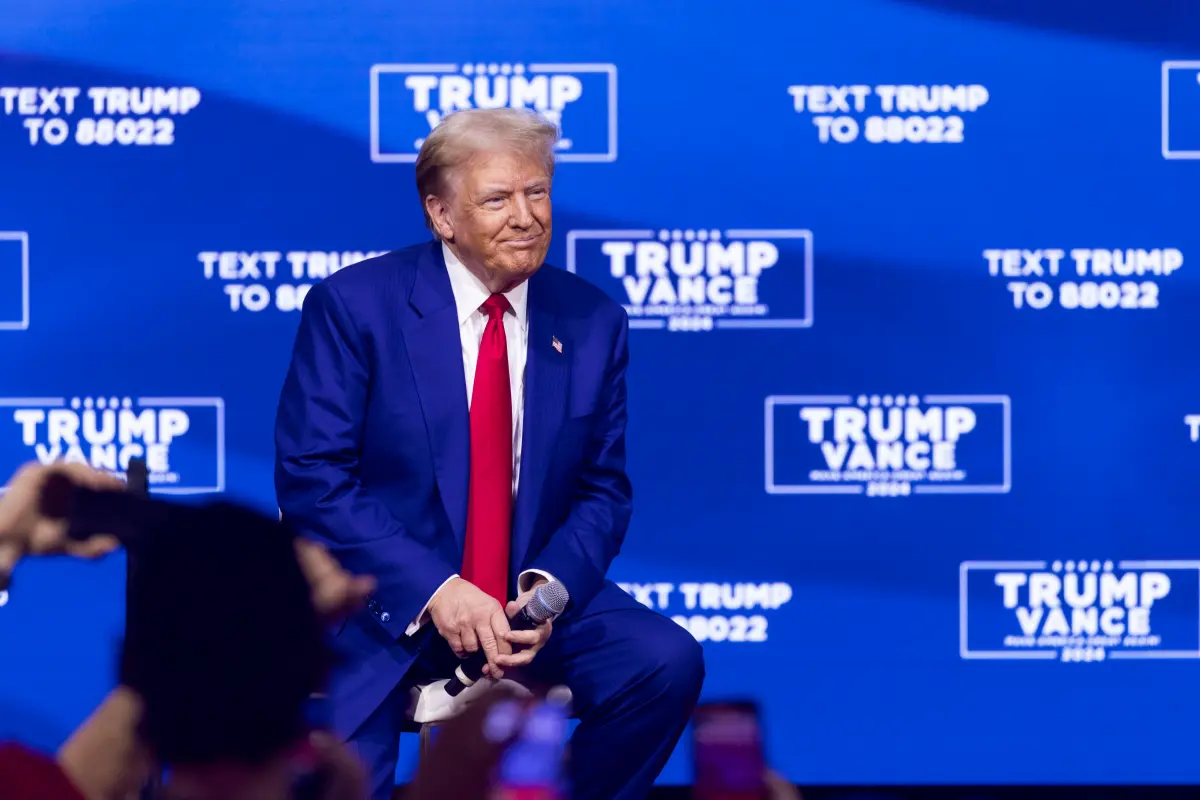
The Republican candidate for the White House, former President Donald Trump, has gained ground in the polls of his Democratic rival, Vice President Kamala Harris, and the selections of November 5 are emerging as the closest of the last century in the United States.
Harris’ candidacy, who replaced President Joe Biden after he threw in the towel in July, initially aroused great enthusiasm that was transferred to the polls, but Trump has managed to pulverize that advantage when there are 16 days left until the elections.
According to the latest forecast of the FiveThiryEight portal based on the average of polls published nationally and in key states, Trump achieves a slight advantage over Harris and has a 52% chance of winning the November 5 elections.
Despite the fact that the Democrat leads the intention to vote at the national level, the Republican is more favored by the Electoral College, the system by which the states grant a certain number of electoral votes to the winning candidate.
Two weeks ago, the forecast of the same portal gave Harris a 58% chance to defeat Trump.
The difference between Harris and Trump
Although the Republican has gained ground in recent weeks, the situation is so tight that the chances of victory of each of the two candidates are practically equivalent to throwing a coin into the air.
The difference between Harris and Trump is less than two percentage points in the seven decisive states (Arizona, Georgia, Michigan, Nevada, North Carolina, Pennsylvania and Wisconsin) so that a small statistical error could alter the result.
In addition, at the national level, the vice president only takes two points ahead of the former president, a narrower difference than the margin between Biden and Trump on any of the days of the 2020 campaign.
After those elections, the Republican refused to accept his defeat and promoted the vote count in some key states and several litigations that were dismissed in court.
In 2000, the election result was up in the air until the Supreme Court gave the victory to Republican George W. Busch on the Democrat Al Gore in Florida, which was then a hinge state.
But according to the FiveThirtyEight portal, to find elections as close as what the polls draw, we have to go back to 1876, when the Republican Rutherford Hayes beat the Democrat Samuel Tilden by a single electoral vote: 185 against 184.
Every vote counts
In such a tight scenario, every vote counts and the two candidates are doubling their presence in the seven decisive states, where in some cases the early vote has already begun with a high turnout.
The rhetoric and the crossfire between the two has also intensified with attacks and insults.
Trump suggested this week that he would be willing to deploy the military against the “internal enemies” of the United States, in an apparent reference to his political rivals, while Harris described his rival as “fascist” and “deranted.”
The vice president has decided to raise the tone against Trump in an attempt to revitalize her campaign, to which former presidents Barack Obama and Bill Clinton have also joined, and former first lady Michelle Obama to give her a new impetus.
The Republican is this Sunday in Pennsylvania, where he is expected to visit a McDonald’s and accuse Harris of having invented that he worked for that fast food chain as a young man.
For her part, the Democratic candidate, who turns 60 today, is in Georgia before traveling to Pennsylvania, where tomorrow she will campaign with Liz Cheney, a former Republican congressman facing Trump.
International
U.S. to suspend visa processing for applicants from 75 countries
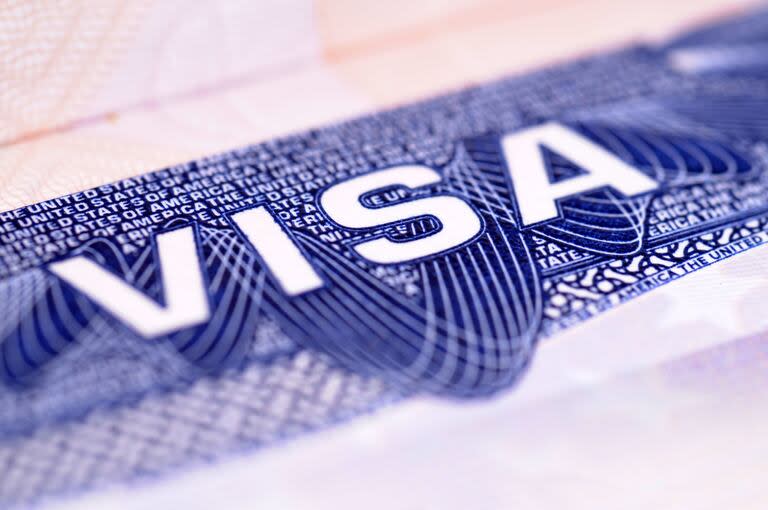
The United States announced on Wednesday that it will suspend visa processing for applicants from 75 nationalities, marking another move by President Donald Trump’s administration to curb the entry of migrants into the country.
“ The United States is freezing the processing of all visas for 75 countries, including Somalia, Russia and Iran,” White House Press Secretary Karoline Leavitt wrote on X. According to Fox News, the measure will take effect on January 21 and will remain in force indefinitely.
Based on an internal State Department memorandum obtained by Fox News Digital, consular officers have been instructed to deny visa applications under existing law while the agency conducts an in-depth review of screening and vetting procedures. The stated goal is to tighten criteria to prevent the entry of foreigners who could eventually rely on public assistance.
The list of affected countries includes several nations in Latin America and the Caribbean, as well as Afghanistan, Russia, Iran, Iraq, Egypt, Nigeria, Thailand, Somalia and Yemen, among others. Fox News reported that exemptions to the suspension will be “very limited” and will only be granted once applicants pass an assessment related to the public charge requirement.
Other countries in the Americas subject to the suspension include Antigua and Barbuda, the Bahamas, Barbados, Belize, Cuba, Dominica, Grenada, Guatemala, Haiti, Jamaica, Nicaragua, Saint Kitts and Nevis, Saint Lucia, and Saint Vincent and the Grenadines.
The decision is based on a strict interpretation of the so-called “public charge” clause of U.S. immigration law. A cable sent to U.S. consulates worldwide in November 2025 had already signaled the shift, instructing officials to apply tougher standards when evaluating applicants, taking into account factors such as age, health status, English proficiency, financial situation, history of public assistance, and even the potential need for long-term medical care.
International
Peruvian Court Orders Definitive Dismissal of Money Laundering Case Against Keiko Fujimori
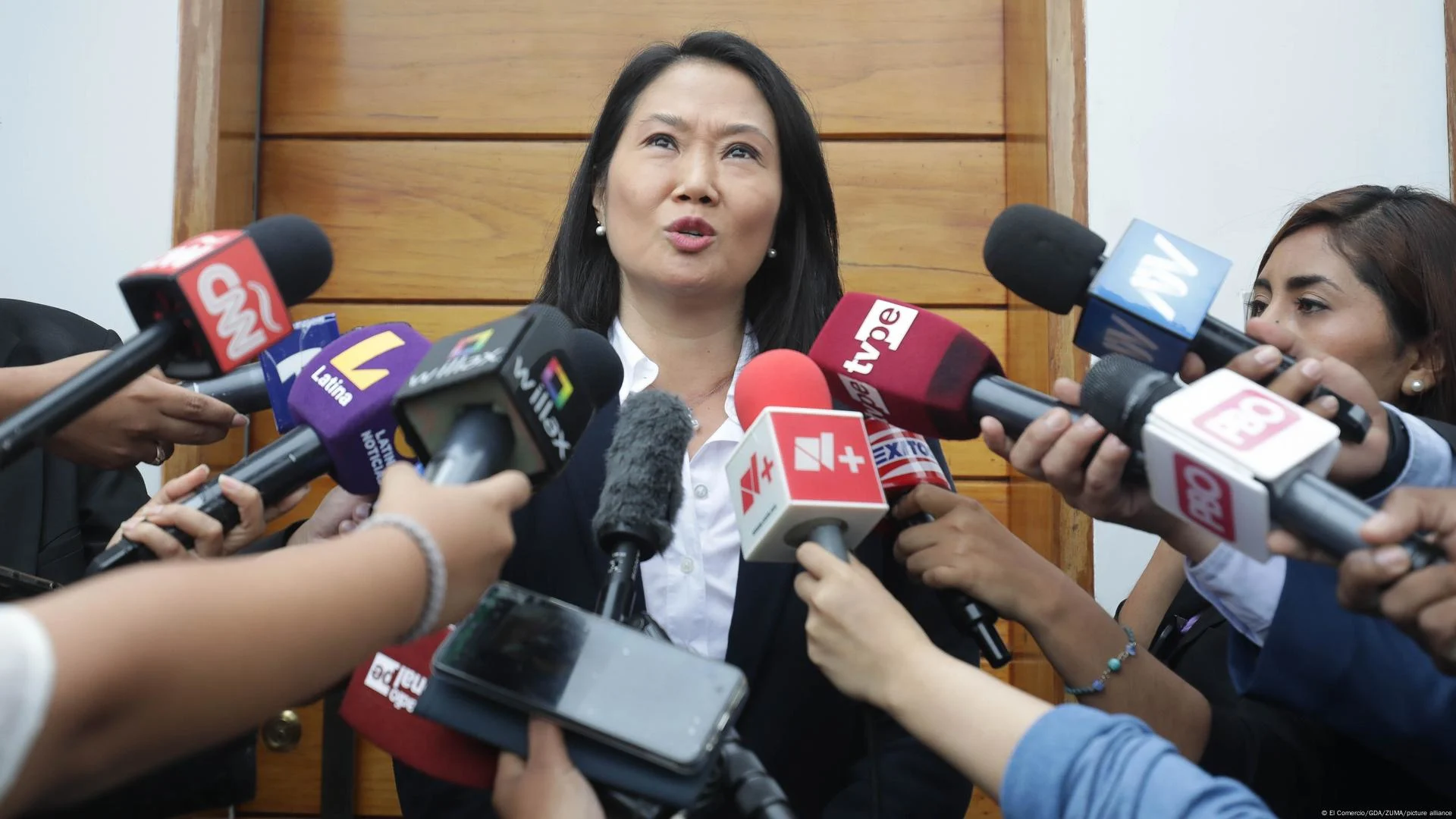
A court of Peru’s National Superior Court of Specialized Criminal Justice ordered the definitive dismissal of the criminal proceedings for alleged money laundering and criminal organization against presidential candidate Keiko Fujimori, authorities reported on Tuesday, January 13, 2026.
The ruling was issued by the Tenth National Preparatory Investigation Court in compliance with a previous decision by the Constitutional Court (TC). The decision was confirmed by Fujimori’s attorney, Giuliana Loza, who said on social media platform X that “there was no money laundering nor criminal organization.”
According to the defense, the case was closed for lacking legal grounds and for violating due process. “The proceedings concluded because they lacked a legal basis and constituted clear prosecutorial persecution,” Loza stated.
Judge Wilson Verastegui, whose ruling was reported by local media, said the Constitutional Court determined that the facts alleged in the so-called ‘Cocktails Case’ do not constitute a criminal offense under the principle of legality. The court noted that the crime of illegal financing of political organizations was not in force at the time the alleged acts occurred.
The dismissal also applies to other leaders of the Fuerza Popular party, including Pier Figari, Ana Rosa Herz, Jaime Yoshiyama and José Chlimper, as well as the party itself.
Keiko Fujimori, daughter of former president Alberto Fujimori (1990–2000), had been under investigation for the alleged irregular financing of her 2011 and 2016 presidential campaigns, a case that exposed her to a possible 30-year prison sentence. However, one year ago the National Superior Court annulled the trial and returned the case to the intermediate stage.
Fujimori is currently pursuing her fourth presidential bid, ahead of Peru’s general elections scheduled for April.
International
Colombian Defense Chief Meets U.S. Officials to Advance Bilateral Narcotics Strategy
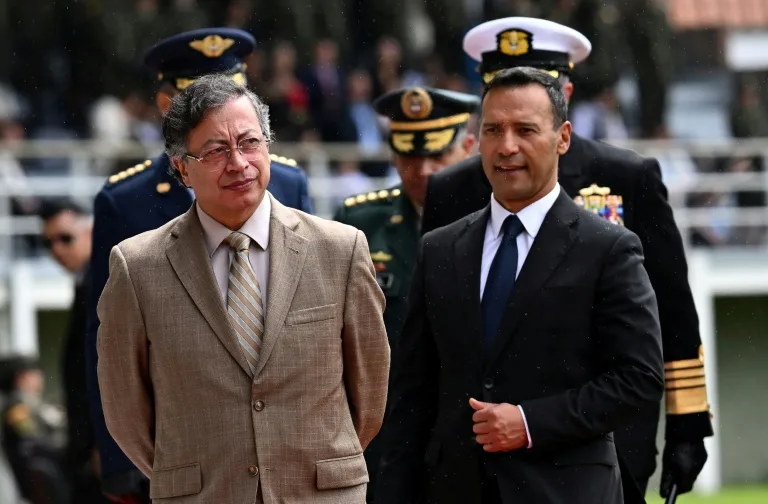
Colombia’s Minister of Defense, Pedro Sánchez Suárez, is in the United States this Tuesday and Wednesday to discuss bilateral cooperation in the fight against drug trafficking, Colombian officials said, in a visit that comes as ties between Bogotá and Washington begin to ease after a period of diplomatic tension.
The trip is seen as a prelude to a scheduled visit by Colombian President Gustavo Petro to Washington, where he is expected to meet U.S. President Donald Trump for the first time in early February. Sánchez will remain in Washington through Wednesday, according to Colombian government sources.
During his stay, Sánchez is slated to meet with senior U.S. officials, including representatives from the Department of Defense, members of the U.S. Senate, and White House advisors, to outline a joint strategy to “defeat drug trafficking” and expand cooperation on intelligence against transnational crime.
According to a statement from the Colombian Defense Ministry, the agenda will include strengthening collaboration on technology, intelligence sharing, and efforts to disrupt criminal networks that operate across borders. Officials said the discussions will also help set the stage for Petro’s upcoming talks with Trump.
The visit follows a period of strained U.S.–Colombia relations last year, when Washington revoked Petro’s visa and withdrew Colombia’s certification as a key partner in anti-drug efforts — moves that coincided with disagreements over counter-narcotics strategy and broader diplomatic frictions. However, a recent phone call between Petro and Trump, described as cordial by officials, helped lower tensions and reopened channels for dialogue ahead of the presidential meeting.
-

 International2 days ago
International2 days agoDeadly van accident near Brazil border leaves 11 dead in Bolivia
-
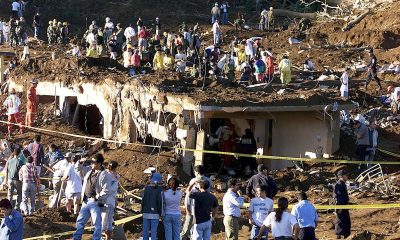
 Central America2 days ago
Central America2 days agoTaiwan’s $10 million donation after 2001 earthquakes allegedly diverted in El Salvador
-

 Central America2 days ago
Central America2 days agoU.S. and El Salvador maintain close partnership, embassy says
-
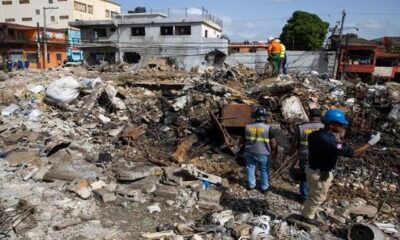
 International2 days ago
International2 days agoDominican court postpones hearing in deadly nightclub collapse case
-

 International2 days ago
International2 days agoU.S. to host Danish and Greenlandic Foreign Ministers at the White House
-

 International2 days ago
International2 days agoPolice hunt gunmen after fatal shooting in Corsica
-
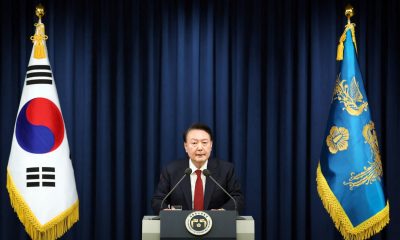
 International2 days ago
International2 days agoEx-President accused of bid to establish dictatorship as verdict nears in South Korea
-

 International2 days ago
International2 days agoVenezuelan opposition leader dedicates Nobel Prize to Trump
-
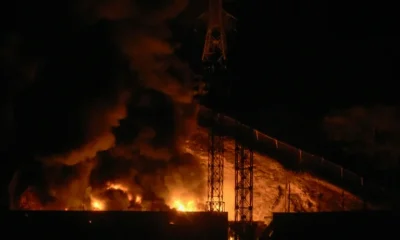
 International5 days ago
International5 days agoU.S. strike in Caracas killed 32 cuban security officers, experts say surprise was crucial
-
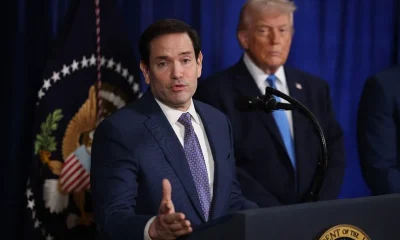
 International4 days ago
International4 days agoU.S. Issues Urgent Evacuation Call for Citizens in Venezuela
-
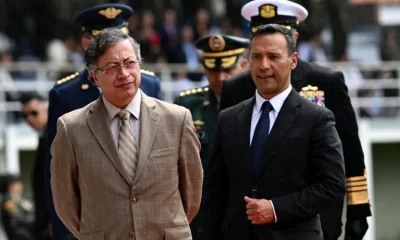
 International17 hours ago
International17 hours agoColombian Defense Chief Meets U.S. Officials to Advance Bilateral Narcotics Strategy
-
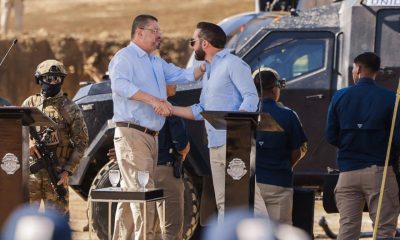
 Central America8 hours ago
Central America8 hours agoBukele warns crime can become a ‘parallel government’ during visit to Costa Rica
-
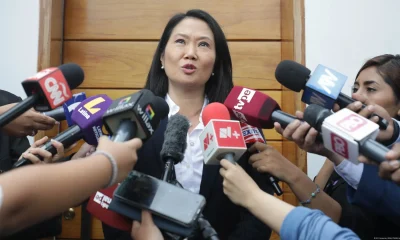
 International17 hours ago
International17 hours agoPeruvian Court Orders Definitive Dismissal of Money Laundering Case Against Keiko Fujimori
-

 International8 hours ago
International8 hours agoU.S. to suspend visa processing for applicants from 75 countries


























